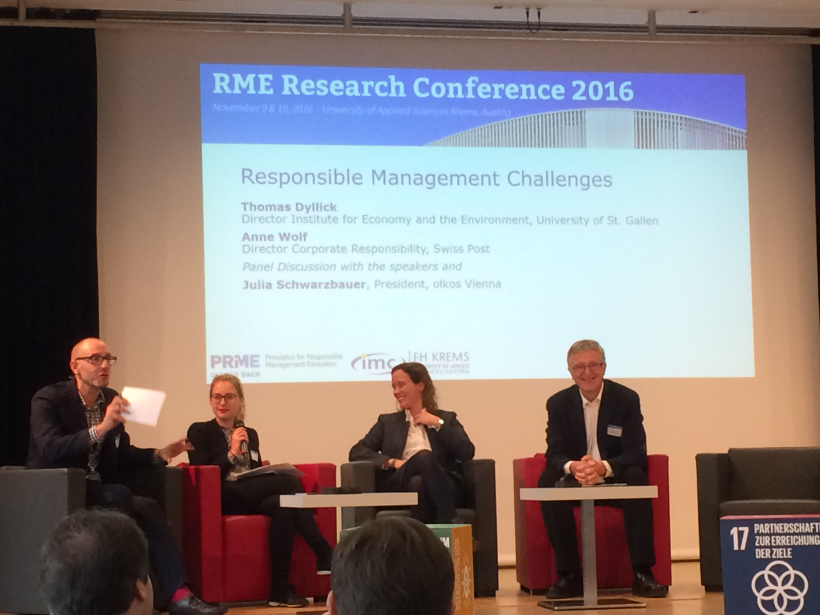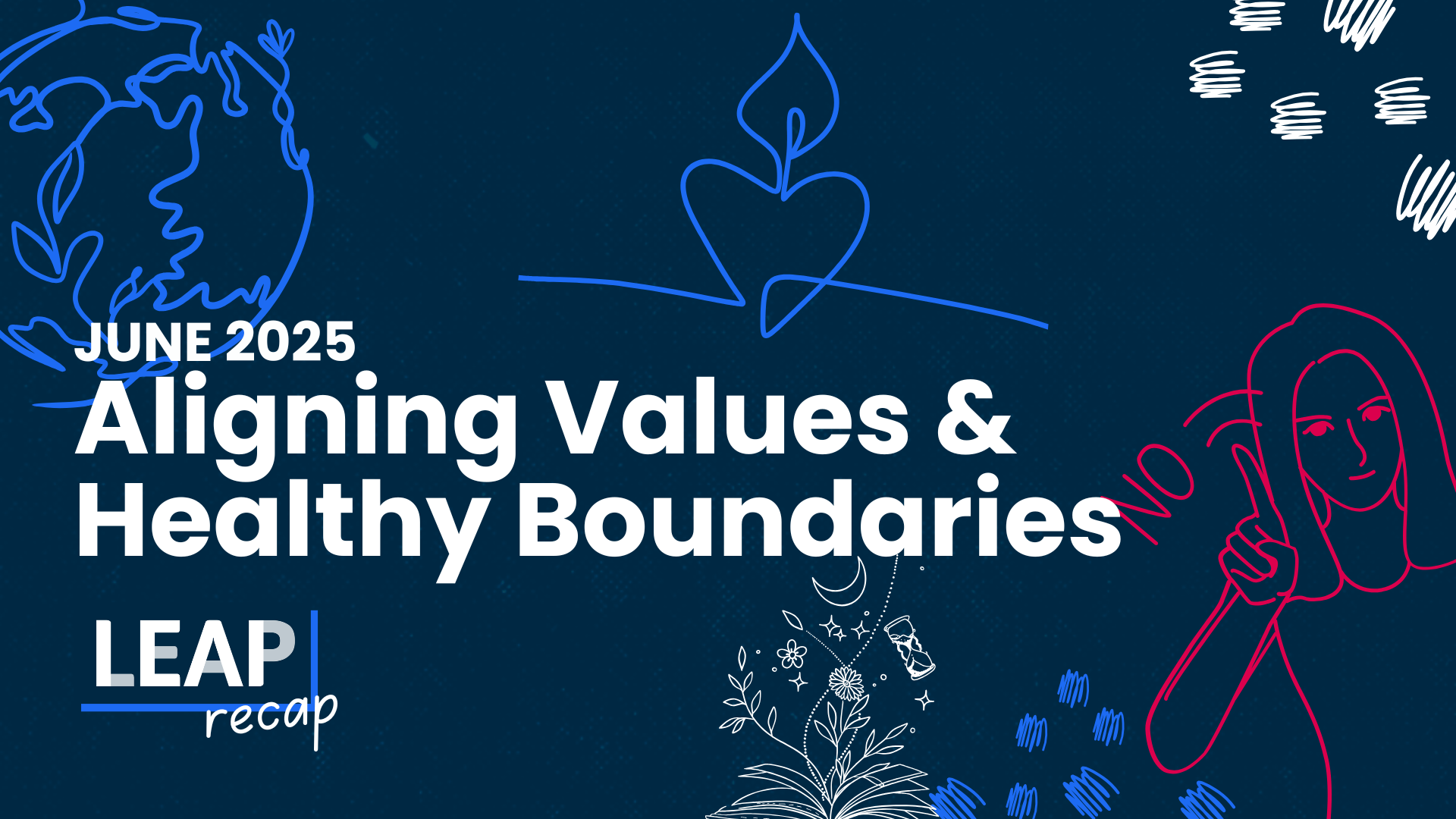
On the 9. & 10. November, the 3rd RME Research Conference took place on the IMC University of Applied Sciences Krems. oikos also contributed to this conference – members joined the panel discussions, conducted a workshop and were responsible for the documentation of the different conference sessions. Katherina and Bernhard, from oikos Vienna, present you an excerpt of the keynotes.
Lise Kingo, the Executive Director of the UN Global Compact, situated in New York, held the first keynote of the 3rd RME Research Conference. She argued that the adaption of the Sustainable Development Goals (SDGs) and the Paris Agreement in 2015 were historic milestones for the way into a sustainable world. The 17 SDGs point out the objectives that must be achieved by 2030 and even though they present many current challenges of our world, Lise Kingo argues that they open up enormous opportunities, enabling the building of new markets.
There is a need for solutions that business can deliver. As SDGs reflect the complex environment, companies are required to follow the Principles of Responsible Management Education (PRME) and engage in the fulfilment of the SDGs in order to make good business and to better support our world. The world is full of radical exponential innovators proposing ideas about how to achieve the 17 SDGs, but there is only a short time left to make the goals come true.
Lise’s ambition is to personally approach companies that are not yet engaging in the sustainability topics with the goal to raise awareness and to break down glass walls. Global Compact developed a platform, where they invite companies to participate, giving them information about the goals and facilitating more interactivity. If a company wants to have a breakthrough innovation, it needs to employ staff that have a sustainable mindset. It must be ensured that future business leaders have that certain mindset. They need to better understand their role in the private sector and must be empowered to become “changemakers”.
Andrew Main Wilson, Chief Executive of the Association of MBAs gave some input to that topic, talking about the necessity to align the Principles of Responsible Management Education with the SDGs.
Andrew Main Wilson put a focus on the virtuous cycle model, claiming that by introducing responsible management principles in the curricula of business schools, students will become responsible employees and entrepreneurs. They will consequently become more responsible sponsors for Not-for-Profit Organisations.
Mr. Wilson, being an alumnus of the Harvard University, mentioned that in the past, graduates from his university went to big companies in order to gain a lot of money, but mindsets have changed as half of Harvard alumni go nowadays to Non-Profit Organisations.
The second part of the Wednesday’s morning presentations dealt with Responsible Management Challenges. Thomas Dyllick, Director of the Institute for Economy and the Environment at the University of St. Gallen, started with explanation what true business sustainability is.
On the one hand, more and more companies report an increasing commitment to sustainability in order to strengthen competitiveness, reputation and other business goals, Dyllick mentioned. On the other hand, the ecological footprint is still rising and is way beyond a reasonable dimension. Therefore, it is important for businesses to get a better understanding of sustainability and become pro-active when it comes to making our world a better place. To show how the understanding of business sustainability has changed over the years Dyllick showed an excellent video produced by the University of St. Gallen.
After the theoretical input Anne Wolf, Director Corporate Responsibility of the Swiss Post, gave us insights on responsible management in practice by the example of Swiss Post.
As a leading company in four different markets (letters, parcels, passengers, customer assets) and being the backbone of public transport the Swiss Post constantly have to innovate and improve its products and services. What is more, there is always the aspect of taking responsibility towards people, customers, employees and the environment.
Once the responsibilities and resulting targets are defined the next step is to harness the potential of responsibilities. Consequently, you have to put the people in the centre and approach topics like diversity, digitisation, transformation, generation Y and new forms of work. Sustainability relates to every single topic and as soon as you implement a responsible management, you achieve a sustainable management.
Afterwards, a panel discussion took place and Julia of oikos Vienna, joined the speakers. For her the biggest problem today is that business sustainability still is seen as a side topic at a lot of universities. As long as the global challenges aren’t linked to business, future leaders will not fully understand the importance of sustainability in businesses. Moreover, sustainability needs to be integrated into the main curricula and become a central vision of universities. Furthermore, Julia appealed to universities and schools to take action and change from “talk the walk” to “walk the talk”.
Written by: oikos Vienna
Read the original post here.



